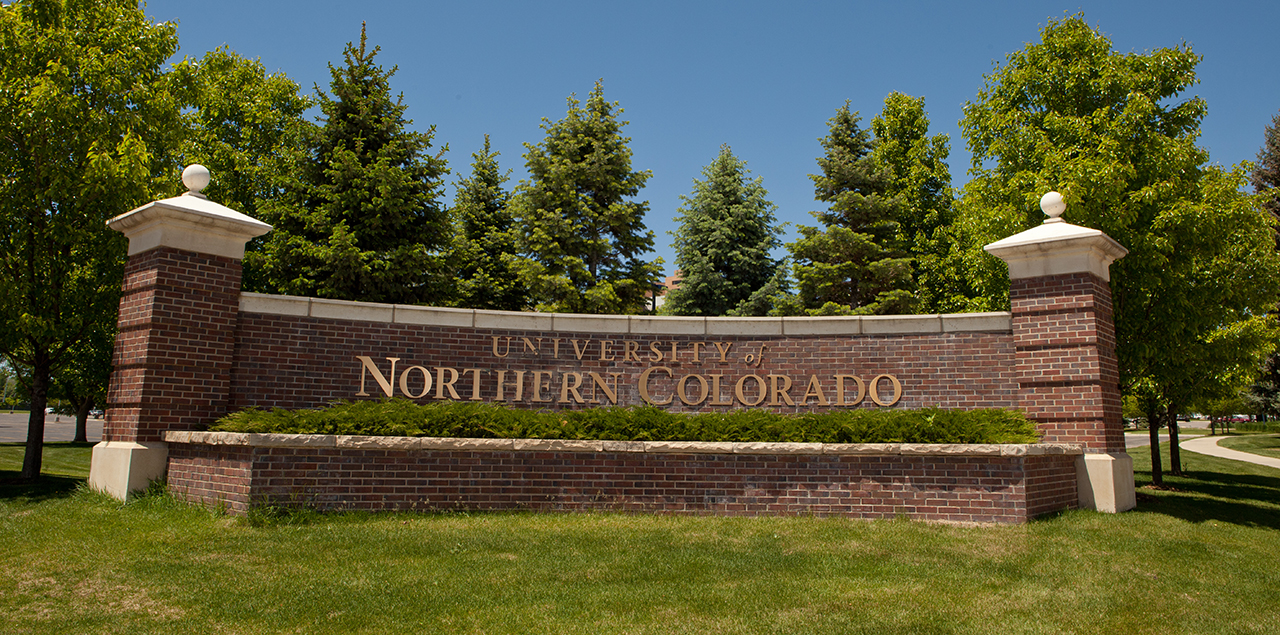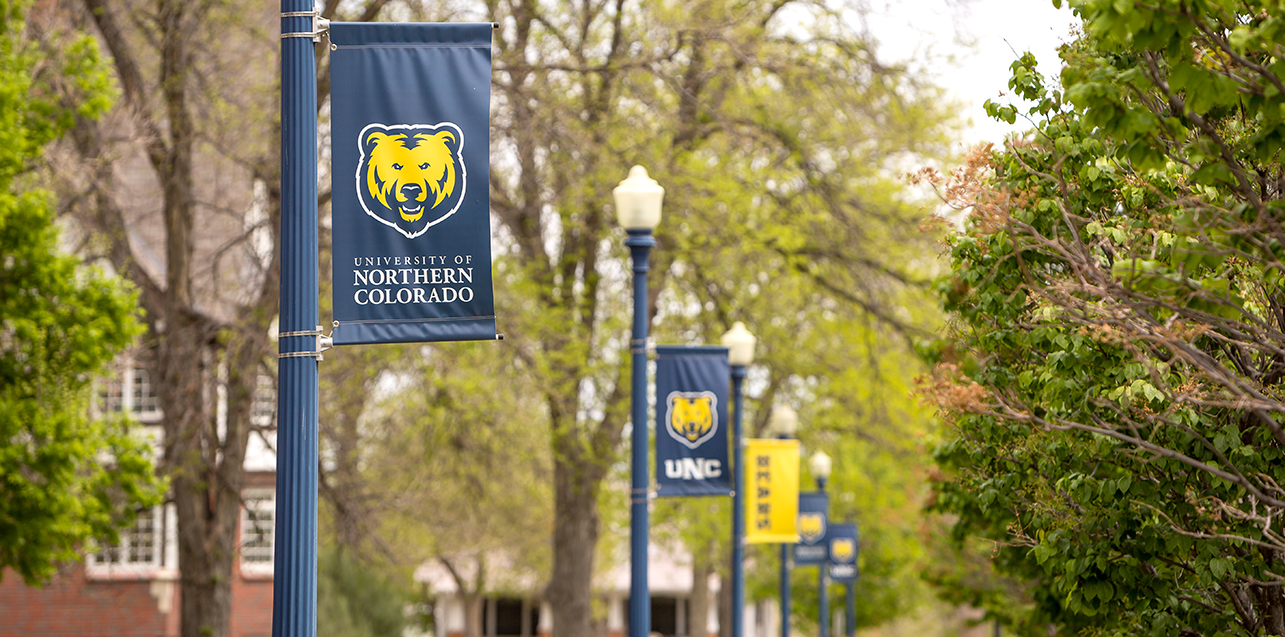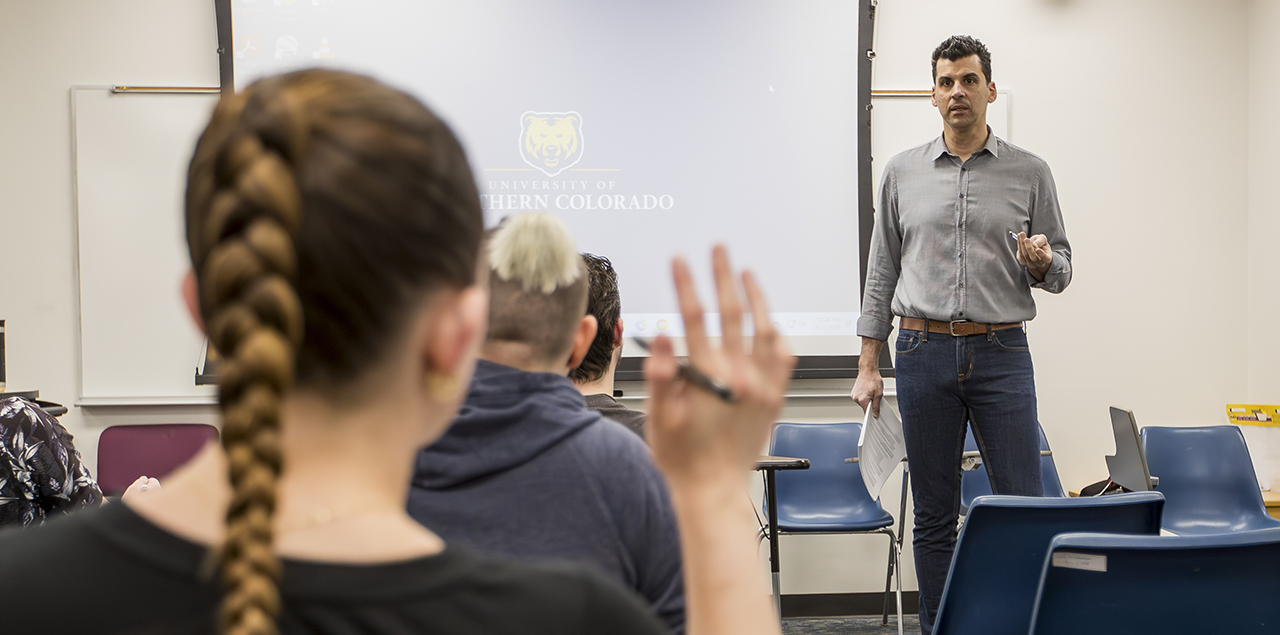
The University of Northern Colorado (UNC) has reached yet another milestone in its pursuit to open what will be Colorado’s third medical college. The Commission on Osteopathic College Accreditation (COCA) recently notified officials that UNC's proposed College of Osteopathic Medicine (UNC COM) has advanced to Candidate Status.
The American Osteopathic Association's COCA serves as the accrediting body for colleges of osteopathic medicine to ensure they meet or exceed the commission’s standards for educational quality. According to Dr. Beth Longenecker, founding dean of the proposed college, Candidate Status is the second of three stages the university must go through prior to reaching full accreditation. The advancement from Applicant to Candidate Status means the college is officially recognized by the COCA and will be publicly listed on their website — it also means the proposed college is on track to welcome its first class as early as fall 2026.
“This achievement was an essential next step in our efforts to create our new COM and we couldn't be more pleased,” said Longenecker. “Our vision is to create a medical college that serves as a catalyst in building a more diverse physician workforce that will positively impact communities across Colorado and the intermountain region, particularly in rural and underserved areas.”
It has been three years since UNC President Andy Feinstein, with the support of the local health care community and other community leaders, launched his ambitious vision to open a medical college on campus. The effort was spurred on by the critical shortage and growing demand for doctors across the state, region and nation.
According to the Association of American Medical Colleges, the United States will face a physician shortage of between 37,800 and 124,000 by 2034. In Colorado, the U.S. Health Resources and Services Administration estimates that less than 35% of the states’ needs for physicians is currently being met. Today, 53 of Colorado’s 64 counties contain regions designated as health professional shortage areas in primary care.
The shortage is primarily driven by population growth and an increasing aging population, as well as an aging health care workforce, of which a significant number will be at retirement age in the next few years. The issue is most evident in rural and underserved communities, negatively affecting access to care.
“The looming physician shortage is an issue that will have broad impacts across many Colorado communities. There is a clear and urgent need for more medical education programs to begin training future physicians and health care professionals now,” said Feinstein.
“Our location in the fastest-growing metropolitan area in Colorado and one of the fastest-growing in the country, means we’re well-positioned to meet that need for our region and beyond” continued Feinstein. “Our diverse student body and history of excellence in the health sciences makes housing a College of Osteopathic Medicine a natural fit for our university.”
With the planned capacity to enroll 150 medical students per class to help meet the state’s workforce needs, the UNC COM is expected to boost Colorado’s economy by $1.4 billion over the next 20 years. An economic impact report released in February indicated that the proposed college would continue to contribute at least $197.2 million annually in added income to the state’s economy beyond the 20-year time frame of the study.
The advancement in the accreditation process follows another significant milestone. The university secured the $200 million minimum investment necessary to open the proposed college after Colorado Governor Jared Polis signed House Bill 24-1231 into law on May 1. The bipartisan legislation, which helped fund four projects related to health science education programs at Colorado colleges and universities, included $127.5 million for construction, startup and accreditation expenses for the UNC COM. The remainder of the investment comprises approximately $41 million from the state's statutory reserve that will satisfy the project’s COCA-required escrow needs and $31 million the university received from generous donors.
Construction on the new 100,000-square-foot, state-of-the-art medical college is expected to start in late fall under the direction of general contractor Adolfson & Peterson Construction and the architecture firm SmithGroup. The new facility will be housed at the site of Bishop-Lehr Hall, located on the corner of 11th Ave. and 20th St. The old building that once served as the university’s Laboratory School has not been a suitable teaching or learning environment for over two decades.
Work will begin with the demolition of Bishop-Lehr, tentatively scheduled for early October, although crews have already started putting fences up and staging the area. A ceremonial groundbreaking is scheduled during the university’s homecoming celebration on Saturday, Sept. 28, at 10:30 a.m. It is open to everyone in the community.
In the meantime, Longenecker has already welcomed the first members of her newly appointed leadership team to campus. Sanjeev Choudhary, Ph.D., and David Ross, D.O., FACEP, were hired as the first two associate deans for the UNC COM.
As the associate dean of Preclinical Education, Choudhary will direct the development and roll-out of the UNC COM curriculum, oversee the division of assessment and lead the development of the college’s research program. Ross, as the associate dean of Clinical Education and Graduate Medical Education, will oversee the clinical components of the curriculum, including fostering relationships with physicians and hospital systems to secure clinical rotations. He will also spearhead efforts to create additional residency training programs across the state and region.
Longenecker said the university is entering an exciting phase in the development of the COM, including the receipt of a generous donation that will fund the first student scholarships. She also expects the addition of even more key staff as over the next few weeks she will launch national searches for an associate dean of Admissions and Student Affairs, several department chairs and the first of the college’s full-time faculty.
"We will continue to work closely with our advisory board to develop a strategic plan to guide us from now through 2030 and will maintain focus on achieving the next significant milestone of Pre-accreditation Status in spring of 2025,” said Longenecker. “That will open the door for us to begin recruiting the next generation of physicians for northern Colorado and beyond.”
More Stories
-
UNC Leaning into Positive Momentum Heading into New Fiscal Year
Este artículo no está en español.
-
My UNC Mobile App to Improve Student Experience
Nueva aplicación My UNC Mobile mejorará la experiencia estudiantil
-
UNC Students Earn 2023-24 Dean's List Honors
Este artículo no está en español.
-
VIDEO: First-Generation Graduates Look Back at Their Trailblazing Journeys
Este artículo no está en español.





